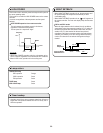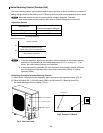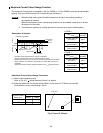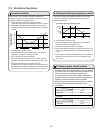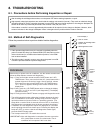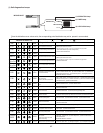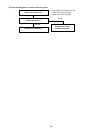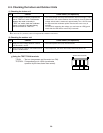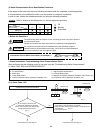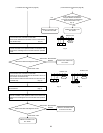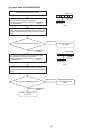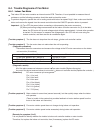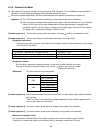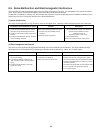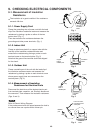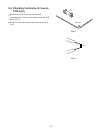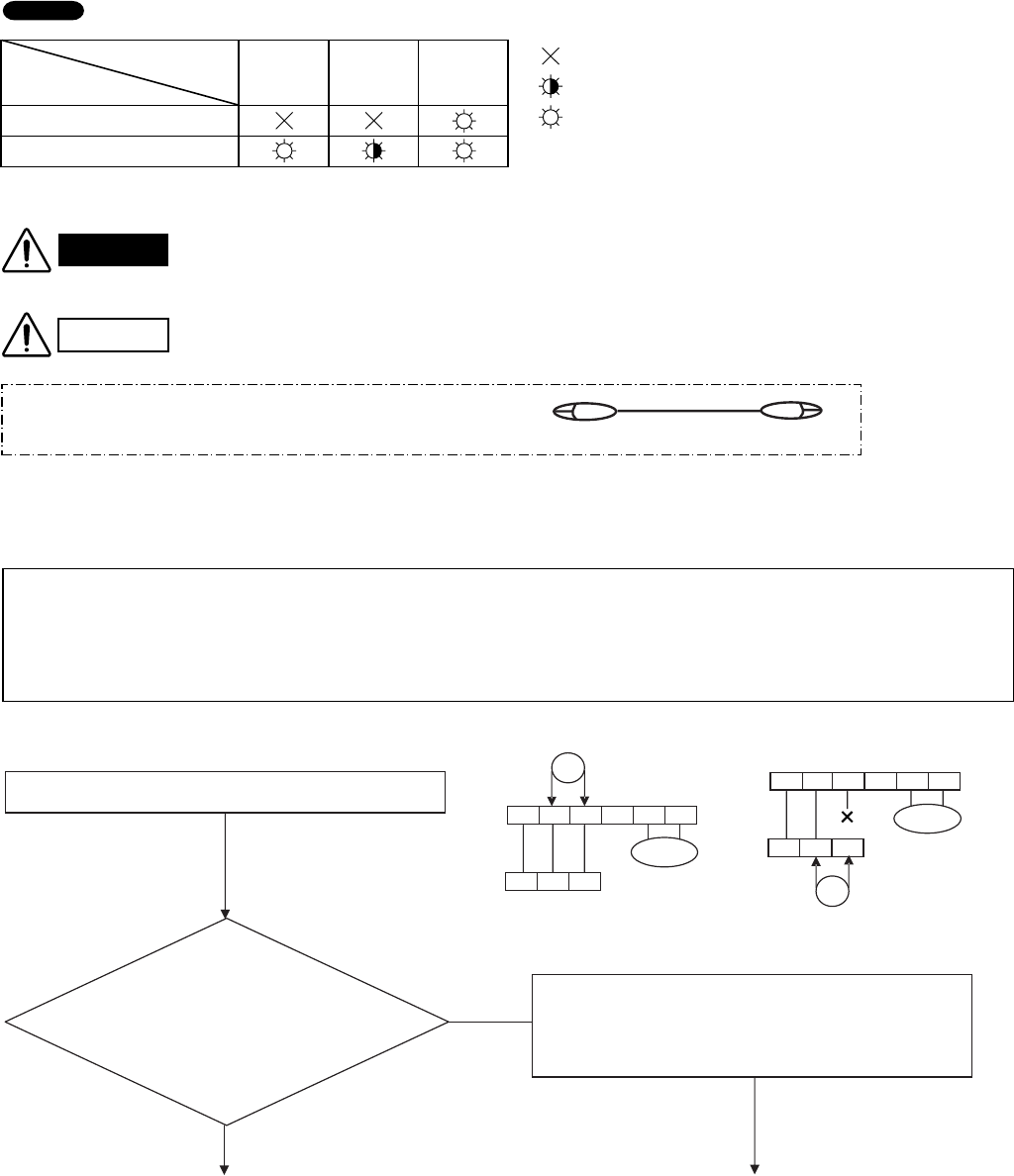
(3) Serial Communication Error Identification Procedure
Refer to "Method of Self-Diagnostics" for the self-diagnostics procedure.
(3-1) Alarm Code : E05
< Before the Operation >
If the lamps on the main body show the following conditions after the completion of self-diagnostics,
a communication error between the indoor unit and outdoor unit might be considered.
In such a case, identify the breakdown section by using the following procedure.
Troubleshooting Serial Communication
Is the voltage of about DC12V
or more given between the terminals
2 and 3 on the outdoor unit terminal strip
(Serial Communication Line) ?
(Fig. 1)
No
Yes
1. Turn OFF the power and wait until the power lamp (LED)
of the outdoor unit controller is turned OFF.
2. Disconnect the cable from the terminal 3 on the indoor unit
terminal strip. (Fig. 2)
3. Turn ON the power.
< Convenient Tool for Short-Circuit Work ( for example ) >
Alligator Clip
Alligator Clip
Cable
A
( Continued to the next page A. )
B
( Continued to the next page B. )
For terminal strip short circuit work or inter-unit wiring removal, turn off the power to
avoid an electric shock.
Release the terminal strip short circuit after the completion of self-diagnostics.
Do not perform the short-circuit work between any other terminals except for
specified ones on the specified terminal strip. If such work is performed between
the incorrect terminals, the unit might be broken.
Fig. 1
Outdoor Unit
Power
1 2 43 5 6
1 2 3
V
+-
Indoor Unit
Outdoor Unit
1 2 43 5 6
1 2 3
V
+
-
Power
Indoor Unit
Fig. 2
NOTE
Lamp
LED Clean
Timer Operation :Off
: Blinking
Alarm Code
(Error Code)
(3) (2) (1)
: Illuminated
E05 (E01)
E07/P04/P05/P20/P27 (E12)
CAUTION
WARNING
< Check Items before Troubleshooting Serial Communication Start >
After confirming that the following errors do not exist, start the "Troubleshooting Serial Communication"
in "Alarm Code : E05 and E07/P04/P05/P20/P27".
1. Mis -wiring (inter-unit cable, etc.)
2. AC power failure
3. Blown fuse
4. Power Relay failure
5. Outdoor Fan Motor failure (defective insulation, etc.)
6. Reactor failure (defective insulation, etc.)
7. High-Pressure Switch failure
8. Overload Relay failure
9. Magnetic Coil failure (defective insulation, short-circuit, etc.)
10. Compressor failure (defective insulation, etc.)
40



